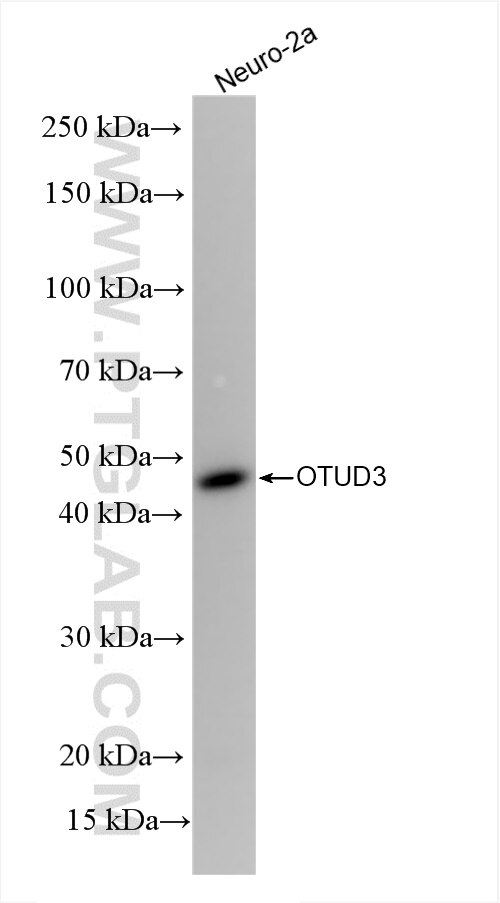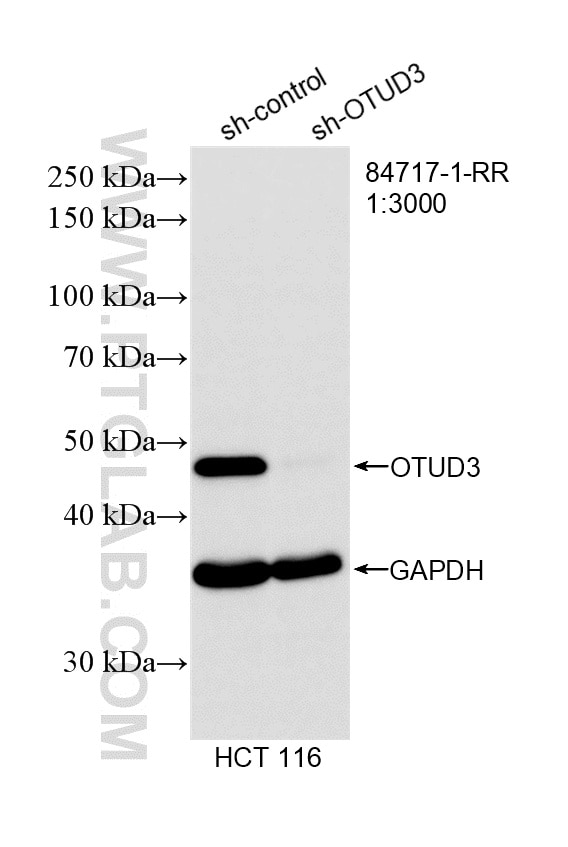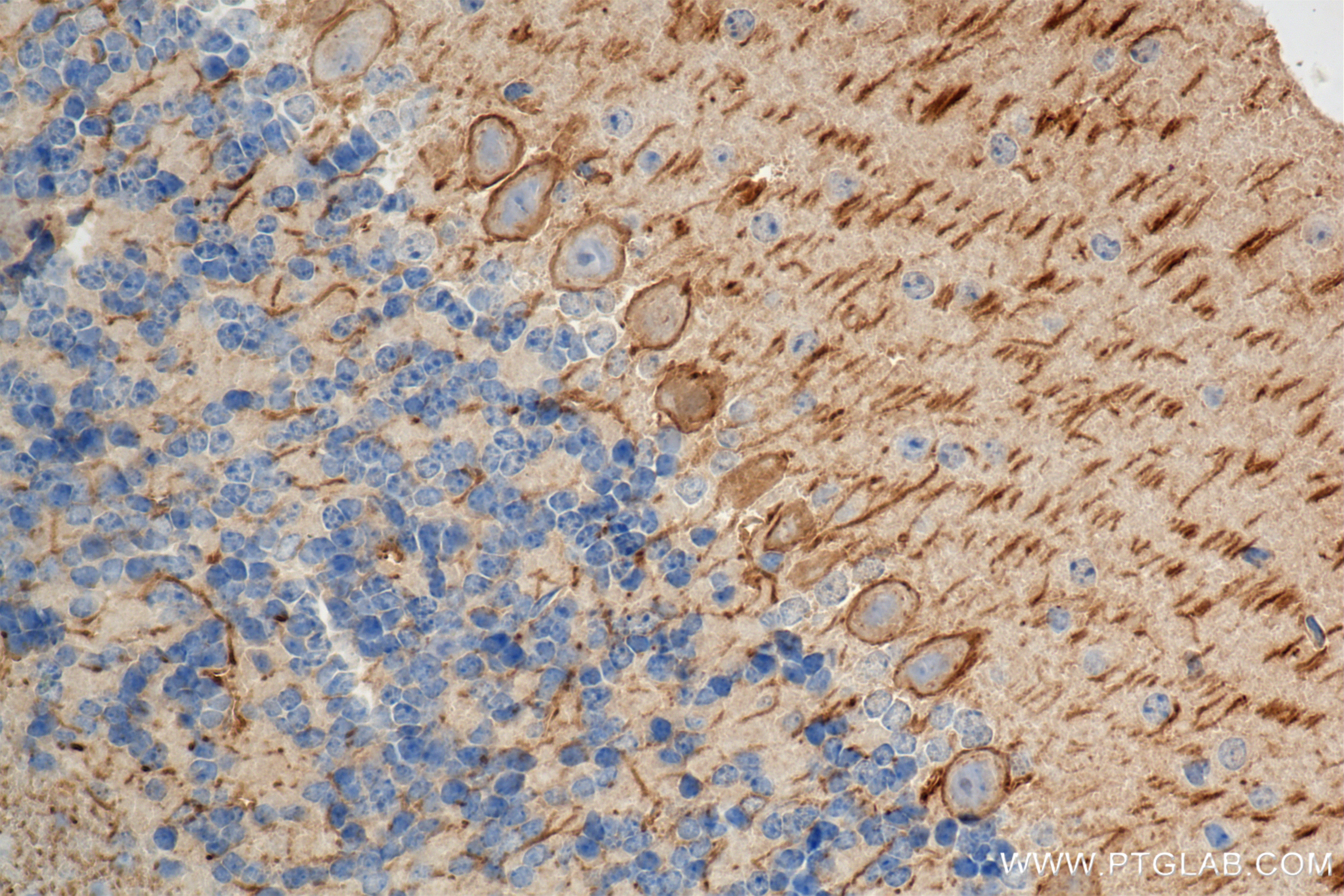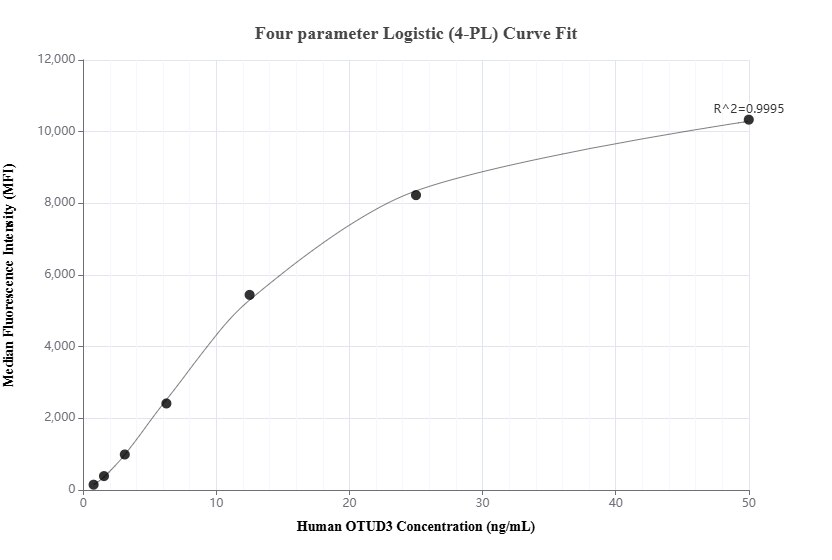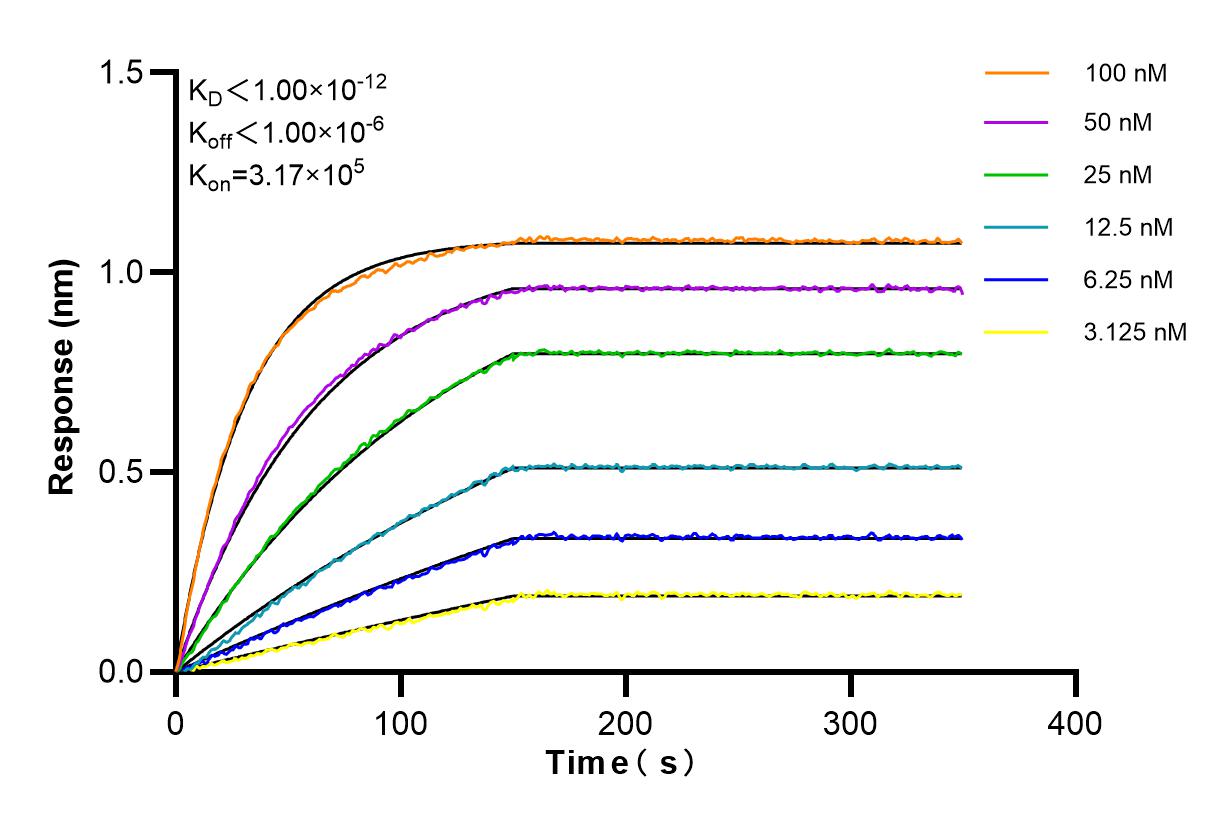Validation Data Gallery
Tested Applications
Recommended dilution
| Application | Dilution |
|---|---|
| It is recommended that this reagent should be titrated in each testing system to obtain optimal results. | |
Product Information
84717-1-PBS targets OTUD3 as part of a matched antibody pair:
MP01521-2: 84717-1-PBS capture and 84717-2-PBS detection (validated in Cytometric bead array)
Unconjugated rabbit recombinant monoclonal antibody in PBS only (BSA and azide free) storage buffer at a concentration of 1 mg/mL, ready for conjugation. Created using Proteintech’s proprietary in-house recombinant technology. Recombinant production enables unrivalled batch-to-batch consistency, easy scale-up, and future security of supply.
This conjugation ready format makes antibodies ideal for use in many applications including: ELISAs, multiplex assays requiring matched pairs, mass cytometry, and multiplex imaging applications.Antibody use should be optimized by the end user for each application and assay.
| Tested Reactivity | human, mouse |
| Host / Isotype | Rabbit / IgG |
| Class | Recombinant |
| Type | Antibody |
| Immunogen |
CatNo: Ag30425 Product name: Recombinant human OTUD3 protein Source: e coli.-derived, PGEX-4T Tag: GST Domain: 192-398 aa of NM_015207 Sequence: NSEAPAHLQTDFQMLHQDESNKREKIKTKGMDSEDDLRDEVEDAVQKVCNATGCSDFNLIVQNLEAENYNIESAIIAVLRMNQGKRNNAEENLEPSGRVLKQCGPLWEEGGSGARIFGNQGLNEGRTENNKAQASPSEENKANKNQLAKVTNKQRREQQWMEKKKRQEERHRHKALESRGSHRDNNRSEAEANTQVTLVKTFAALNI 相同性解析による交差性が予測される生物種 |
| Full Name | OTU domain containing 3 |
| Calculated molecular weight | 45 kDa |
| Observed molecular weight | 45 kDa |
| GenBank accession number | NM_015207 |
| Gene Symbol | OTUD3 |
| Gene ID (NCBI) | 23252 |
| Conjugate | Unconjugated |
| Form | |
| Form | Liquid |
| Purification Method | Protein A purification |
| UNIPROT ID | Q5T2D3 |
| Storage Buffer | PBS only{{ptg:BufferTemp}}7.3 |
| Storage Conditions | Store at -80°C. |
Background Information
OTUD3 is a kind of deubiquitinating enzyme that hydrolyzes 'Lys-6'- and 'Lys-11'-linked polyubiquitin. It's an important regulator of energy metabolism. Glucose and fatty acids trigger its nuclear translocation by CBP-dependent acetylation. In the nucleus, deubiquitinates and stabilizes the nuclear receptor PPARD regulating the expression of various genes involved in glucose and lipid metabolism and oxidative phosphorylation.


